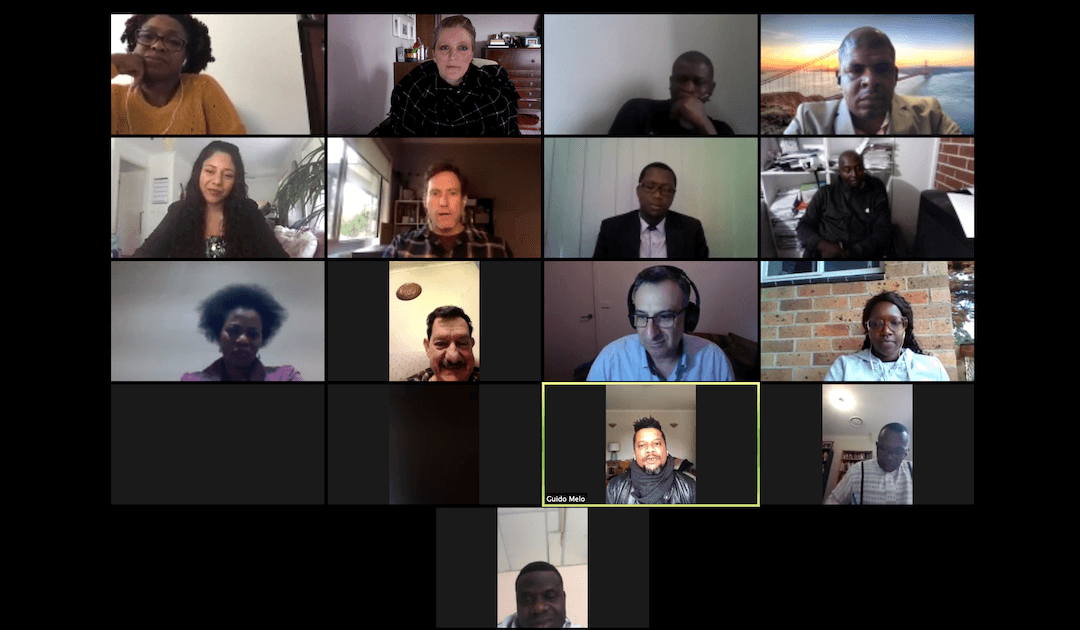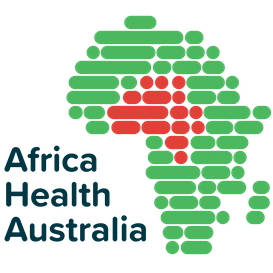
Health Diary of a Community
The purpose of the forum was to hear and share personal stories and experiences, and to understand any strategic needs from community leaders on which to build programs.
The topics raised were varied and poignant. For some in the community who are experiencing hardship – even during normal times – there are challenges to finding health providers that can be trusted, and information that is safe.
Guest speaker: Dr Mike Kamara from Sierra Leone, practices obstetrics and gynaecology in Perth. He has worked at Liverpool Hospital, and has a keen interest in community and public health and played a role in the Ebola National Summit.
Guest Contributor: Stella Nwosu is a registered nurse/midwife at Westmead Hospital, and a Child and Family Health Nurse at Doonside Community Health Centre. She is a bilingual health educator at NSW Health on Female Genital Mutilation.
Attendees included doctors, academics, health and counselling professionals, advocacy organisations, and African-Australian community members from NSW, VIC, WA and Queensland. In total 21 attended the 1.5-hour webinar.
Key concerns raised
- There was a strong sense that the African Australian community is stronger through unity, but that one of the impacts of COVID-19 was a fracturing of togetherness.
- African communities are fuelled by connection and family. As this is taken away, how is the community coping with finding alternate ways to maintain connection? Mental health and well-being is suffering, putting strain on domestic and relationship health. How can the African-Australian community access the right supports to safely fill gaps? Is it clear and do we know best how to support and provide positivity and new sense of stability? How do we best support the community to build a positive approach towards the uncertainty and fractured sense of stability COVID-19 has placed on our society.
- How will African Australians be prepared if a second wave comes? What workplace and community protections are in place? Are both public and private systems supported adequately?
- Data drives policy – but what targeted and trusted data do we have? If an African-Australian community member gets coronavirus, how will we know? Is the education and clear pathway to a sharing of information in place?
- Communication breakdown: no real solution-finding, messaging or advice specific to African Australians. There is a gap between health and government professionals and community leaders at the grass roots level.
- There is a certain importance in African Australians recognising themselves as messengers, influencers and trusted representatives. However, there is a significant lack of a ‘voice of the youth.’
Mental health is a form of silent deterioration, and we must look out for this in the community.
How are we prepared for a second wave? That [African Australians] are resilient at this stage – it’s not actually defined. The disconnect between professionals and community leaders is so wide. What plans are in place to connect ethnic, regional leaders that will bring this message to the grassroots? Victor
Africans are communal people; we like to support one another. We love our solidarity. We believe that unity is power. We miss each other, that gathering. And with that communication breakdown – how do we reach those who are isolated? Stella
I come from a family of doctors. I’ve been in Australia 10 years. I worry about going to the doctor – it’s taken me five years before I could find a doctor I trusted, and eight years to find someone I knew I could trust. Someone who could say ‘It’s okay you don’t need that medication.’ So my challenge here is feeling safe. Denise
We would like to thank everyone for their commitment to the community and an extended thanks to all the health professionals and frontline staff who continue to provide support and guidance during this unprecedented time.
